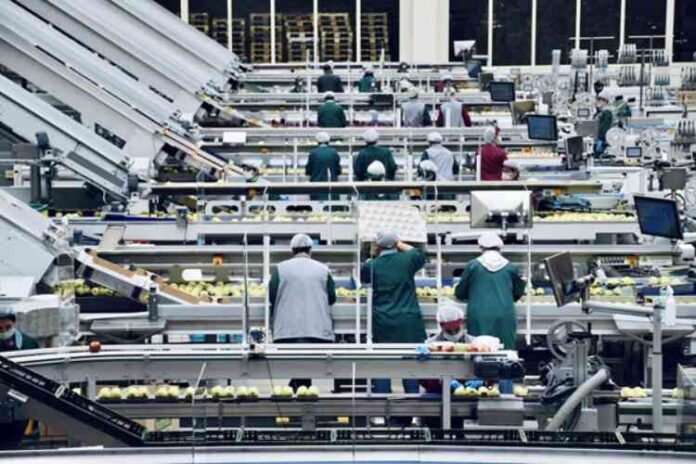The food industry is often a high operational cost domain that demands pragmatic and effective cost-saving strategies to ensure business longevity and profitability. Constrained by volatile market shifts, economic fluctuations, and unpredictable consumer behavior, it’s essential to adopt effective cost-saving strategies to mitigate financial strains and ensure your business remains thriving despite trying economic times. In this article, we delve into effective cost-reduction strategies and their implications on your overall food industry business performance.
Investing in Efficient Machinery
There is no overstating the significance of quality machinery in your business. Machinery directly impacts your production capacity, operational efficiency, and product quality. Embracing well-maintained used equipment that has already been configured for optimal function, such as an industrial ice maker from Genemco, can transform your operations, boosting efficiency and significantly cutting operational costs.
Quality machinery offers more than just efficient operations. High-quality machines typically come with modern mechanisms that cut down on the need for large labor forces, contributing to personnel cost savings. Additionally, embracing automation through advanced machinery can present increased precision and consistency in production, further enhancing product quality and leading to increased customer satisfaction and long-term loyalty. It may initially involve a hefty financial outlay, but the long-term cost-saving benefits cannot be downplayed.
The key lies in selecting the right machinery for your specific industry needs, taking into consideration factors such as your specific production requirements, available space, and most importantly, energy efficiency. Making an informed decision here is crucial and may necessitate expert advice to ensure investment in machinery does not end up draining more resources than it saves down the line.
Adopting Efficient Energy Sources
Energy consumption is another area that often presents a significant chunk of operational costs in the food industry. Consistent and reliable power supply is critical for maintaining a steady production flow. However, the cost implications can be crippling, especially in the wake of rising global energy prices. Adopting efficient energy sources presents a viable solution for cost-saving. Exploring alternative energy options appropriate for your circumstances can yield significant savings on energy bills.
A good example involves partnering with a reliable fuel supplier in Saskatchewan, or wherever you’re located. Such a partnership ensures a constant supply of quality fuel that’s vital for your operations. It eliminates any risks associated with unreliable suppliers that can result in operational hiccups. Furthermore, establishing a long-term relationship with a reliable fuel supplier can help negotiate better rates, leading to significant cost savings on energy.
Going green is another viable strategy. This can involve investments in renewable energy sources like solar and wind power or adopting energy-efficient tools and equipment in your operations. Embracing energy conservation practices also goes a long way in reducing energy costs.
Training Staff for Optimal Performance
Your staff is your greatest asset. Investing in their training ensures they’re equipped with the latest industry knowledge to efficiently perform their tasks. Effective training programs both enhance productivity and reduce costs associated with errors, wastage, and accidents. The return on investment for effective staff training is abundantly clear, proving to be a worthwhile strategy for those looking to save costs without compromising on quality or safety.
Training also increases staff morale by demonstrating your commitment to their professional development, consequently leading to lower employee turnover rates and recruitment costs. It also builds up a highly skilled workforce able to tackle industry challenges more effectively, enhancing overall business competitiveness in the market
Regular training evaluations ensure the training programs remain relevant and impactful. These evaluations also provide a platform to gauge the effectiveness of various training methods and strategies, making necessary adjustments to optimize results.
Altogether, investing in efficient machinery like industrial ice makers, adopting a reliable fuel supplier, and training employees for enhanced performance are some practical strategies for saving money in the food industry. Implementing these strategies can significantly elevate your business’s operational efficiency and profitability, providing a firm foundation for sustainable and profitable growth in the food industry.


